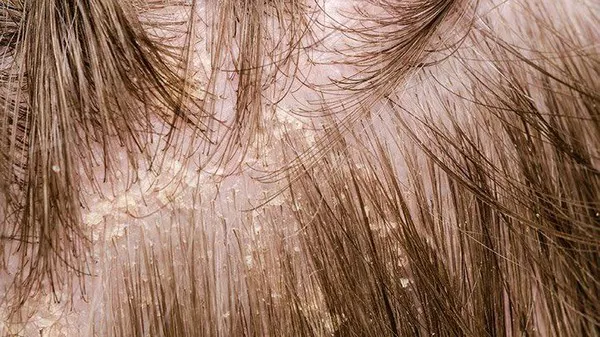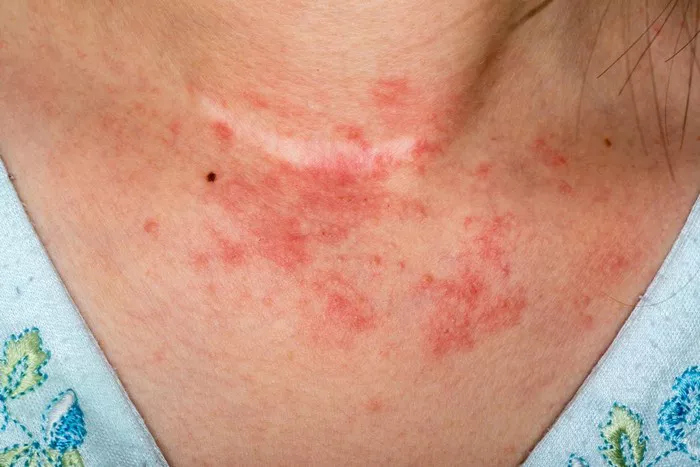Scalp eczema, also known as seborrheic dermatitis, is a common inflammatory skin condition affecting the scalp. It typically manifests as red, itchy, and flaky patches, often leading to discomfort and embarrassment for those affected. While the exact cause of scalp eczema remains unclear, several factors are known to contribute to its development, including genetics, immune system dysfunction, environmental factors, and the presence of the yeast Malassezia on the skin.
Beneficial Shampoo Ingredients: Pyrithione Zinc, Selenium Sulfide, Salicylic Acid, Coal Tar, Ketoconazole
When it comes to managing scalp eczema, choosing the right shampoo is paramount. Several key ingredients have been found to be effective in alleviating symptoms and controlling flare-ups:
1. Pyrithione Zinc: Known for its antimicrobial properties, pyrithione zinc helps to reduce the levels of Malassezia on the scalp, thereby minimizing inflammation and flaking.
2. Selenium Sulfide: This antifungal agent works by slowing down the growth of Malassezia and reducing the rate of skin cell turnover, thereby relieving itching and flaking associated with scalp eczema.
3. Salicylic Acid: With its exfoliating properties, salicylic acid helps to remove dead skin cells and unclog hair follicles, reducing inflammation and promoting healthier skin.
4. Coal Tar: While its exact mechanism of action is not fully understood, coal tar has been used for decades to treat various skin conditions, including scalp eczema. It helps to reduce itching, redness, and scaling.
5. Ketoconazole: An antifungal medication, ketoconazole effectively targets the yeast responsible for scalp eczema, helping to alleviate symptoms and prevent flare-ups.
Ingredients to Avoid: Fragrances, Sulfates, Harsh Preservatives
While certain ingredients can help alleviate symptoms of scalp eczema, others may exacerbate the condition or cause further irritation. It’s important to steer clear of products containing:
1. Fragrances: Synthetic fragrances can irritate the scalp and trigger allergic reactions, worsening eczema symptoms.
2. Sulfates: Commonly found in many shampoos, sulfates can strip the scalp of its natural oils, leading to dryness and irritation.
3. Harsh Preservatives: Ingredients such as parabens and formaldehyde-releasing agents may irritate sensitive skin and exacerbate scalp eczema symptoms.
Types of Shampoos: Medicated, Gentle Cleansing, Natural/Organic
When selecting a shampoo for scalp eczema, there are several options to consider:
1. Medicated Shampoos: Formulated with active ingredients like pyrithione zinc, selenium sulfide, or ketoconazole, medicated shampoos target the underlying causes of scalp eczema and provide relief from symptoms.
2. Gentle Cleansing Shampoos: These shampoos are free of harsh chemicals and fragrances, making them suitable for sensitive scalps. They help to cleanse the scalp without stripping away its natural oils.
3. Natural/Organic Shampoos: Made with plant-based ingredients and free of synthetic chemicals, natural and organic shampoos offer a gentler alternative for individuals with scalp eczema. They nourish the scalp and hair without causing irritation.
Recommended Shampoos: A Curated List with Brief Descriptions
1. Head & Shoulders Clinical Strength Shampoo: This medicated shampoo contains 1% pyrithione zinc to effectively treat scalp eczema while leaving hair soft and manageable. It is clinically proven to relieve itching and flaking associated with dandruff and seborrheic dermatitis.
2. Selsun Blue Medicated Shampoo: Formulated with 1% selenium sulfide, this shampoo effectively controls the symptoms of scalp eczema, including itching, flaking, and redness. It also helps to prevent recurrence when used regularly.
3. Neutrogena T/Sal Therapeutic Shampoo: With 3% salicylic acid, this therapeutic shampoo helps to exfoliate the scalp, remove flakes, and reduce itching associated with scalp eczema. It is gentle enough for daily use and suitable for all hair types.
4. MG217 Medicated Coal Tar Shampoo: This medicated shampoo contains 3% coal tar to relieve itching, scaling, and flaking caused by scalp eczema. It helps to soothe inflammation and restore the scalp’s natural moisture balance.
5. Nizoral Anti-Dandruff Shampoo: Formulated with 1% ketoconazole, this antifungal shampoo effectively targets the yeast responsible for scalp eczema, helping to alleviate symptoms and prevent recurrence. It is gentle enough for use on color-treated and chemically processed hair.
Shampoo Comparison Table: Key Features, Price, User Reviews
| Shampoo | Active Ingredient(s) | Key Features | Price | User Reviews |
| Head & Shoulders Clinical | 1% Pyrithione Zinc | Clinically proven to relieve itching and flaking | $10.99 | “This shampoo works wonders for my scalp eczema! I noticed a significant improvement after just a few uses.” |
| Selsun Blue Medicated | 1% Selenium Sulfide | Controls itching, flaking, and redness | $8.49 | “I’ve tried many shampoos, but this one is by far the most effective for my scalp eczema. Highly recommend!” |
| Neutrogena T/Sal Therapeutic | 3% Salicylic Acid | Exfoliates the scalp and removes flakes | $7.99 | “I love how this shampoo leaves my scalp feeling clean and refreshed. It has helped control my eczema flare-ups.” |
| MG217 Medicated Coal Tar | 3% Coal Tar | Soothes inflammation and restores moisture | $12.99 | “I’ve been using this shampoo for years to manage my scalp eczema, and it never disappoints. A must-have!” |
| Nizoral Anti-Dandruff | 1% Ketoconazole | Targets the yeast responsible for eczema | $14.99 | “After struggling with scalp eczema for months, this shampoo finally provided relief. I’m amazed at how well it works!” |
Tips for Shampoo Use and Scalp Care: Proper Usage, Frequency, Complementary Strategies
In addition to choosing the right shampoo, there are several tips and strategies that can help manage scalp eczema effectively:
1. Follow the Instructions: Always read and follow the instructions provided on the shampoo bottle. Use the product as directed to achieve the best results.
2. Be Consistent: Consistency is key when treating scalp eczema. Use the shampoo regularly, even when symptoms improve, to prevent flare-ups.
3. Avoid Hot Water: Hot water can strip the scalp of its natural oils and exacerbate eczema symptoms. Instead, use lukewarm water when washing your hair.
4. Use a Gentle Touch: When shampooing, avoid scrubbing the scalp vigorously, as this can irritate sensitive skin. Instead, massage the shampoo gently into the scalp using your fingertips.
5. Moisturize: After washing your hair, apply a moisturizer or scalp treatment to help soothe dryness and prevent itching.
6. Avoid Triggers: Identify and avoid triggers that may exacerbate your scalp eczema, such as stress, certain foods, and harsh hair products.
7. Consult a Dermatologist: If your scalp eczema persists or worsens despite using over-the-counter shampoos, consult a dermatologist for further evaluation and treatment options.
Importance of Dermatologist Consultation
While over-the-counter shampoos can be effective in managing mild to moderate cases of scalp eczema, some individuals may require prescription-strength treatments or additional medical intervention. A dermatologist can provide personalized recommendations based on your specific condition and medical history. They can also help identify any underlying factors contributing to your scalp eczema and develop a comprehensive treatment plan to address your needs.
Conclusion
In conclusion, selecting the best shampoo for scalp eczema involves understanding the condition, identifying beneficial ingredients, and choosing products that are gentle yet effective. By following proper shampooing techniques and incorporating complementary scalp care strategies, individuals can effectively manage their scalp eczema and enjoy healthier, more comfortable skin. If symptoms persist or worsen, consulting a dermatologist is recommended for further evaluation and treatment.






















